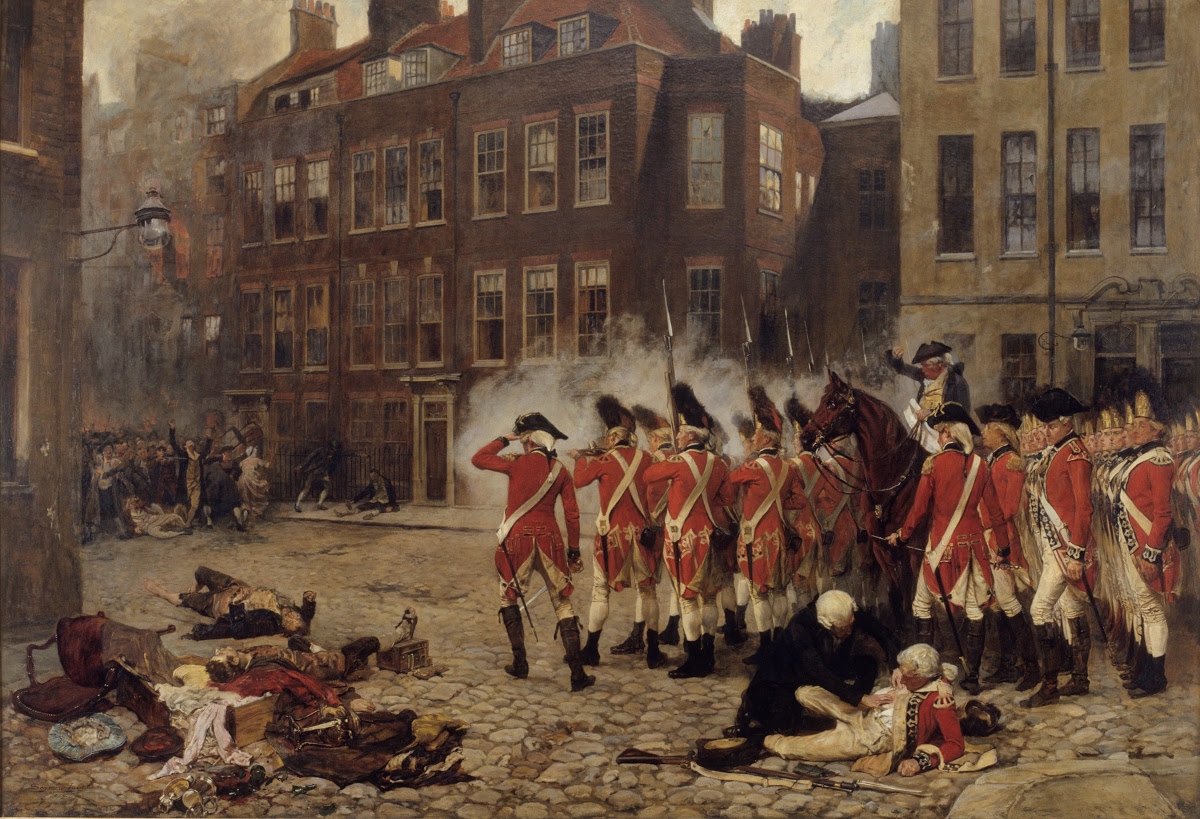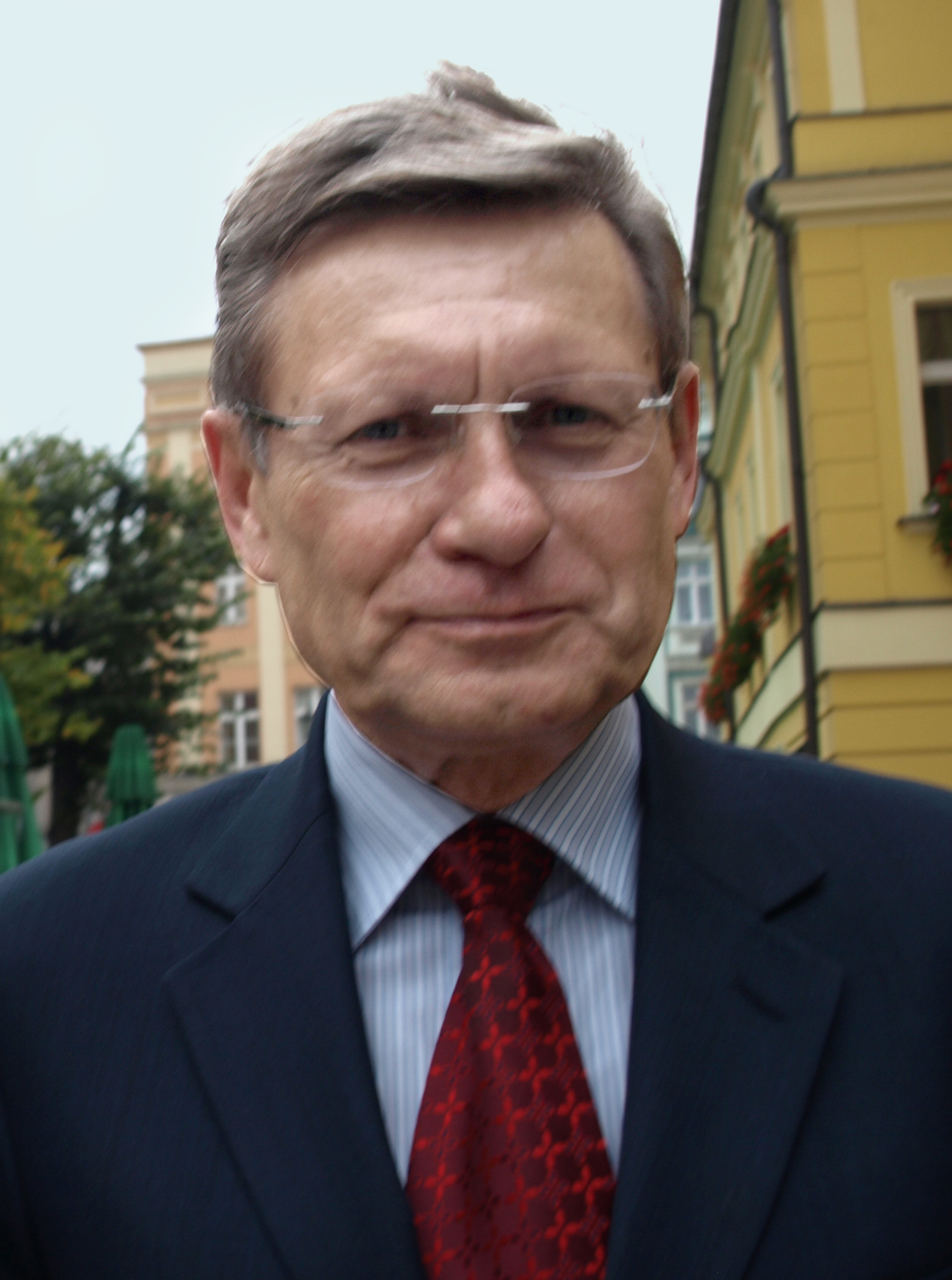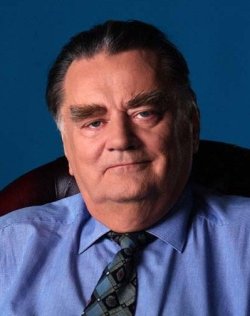|
Akcja Wyborcza Solidarność
Solidarity Electoral Action (, AWS) was a coalition of political parties in Poland, active from 1996 to 2001. AWS was the political arm of the Solidarity trade union, whose leader Lech Wałęsa (also an AWS member), was President of Poland from 1990 to 1995, and the successor of the parties emerged from the fragmentation of the Solidarity Citizens' Committee. The coalition was led by Marian Krzaklewski and Jerzy Buzek, who was Prime Minister of Poland from 1997 to 2001. Today's main parties in Poland, Law and Justice and Civic Platform, came out from the ashes of AWS. History The AWS was formed in June 1996 as a coalition of over 30 Christian-democratic, conservative and liberal political parties, mostly from the Solidarity Citizens' Committee, the Solidarity trade union's political wing. Among them, there were the Christian National Union, the Party of Christian Democrats, the Centre Agreement, the Conservative People's Party (formed in January 1997), the Peasants' Agreement, ... [...More Info...] [...Related Items...] OR: [Wikipedia] [Google] [Baidu] |
Marian Krzaklewski
Marian Krzaklewski (; born 23 August 1950 in Kolbuszowa) is a Polish politician. A member of Solidarity since the 1980s, he was one of the most known and influential Polish politicians in the late 1990s, when he created the Solidarity Electoral Action (AWS). The AWS coalition, especially when it joined forces with Freedom Union, was a major accomplishment in Polish politics, transforming the fragmented post-Solidarity camp into a powerful political force. Krzaklewski studied information science from Politechnika Śląska and holds a PhD degree. In 1980 he became involved with Solidarity, the famous Polish anti-communist trade union and social movement. Within the movement he was active in the Silesia region. In 1991, he replaced Lech Wałęsa (then president of Poland) as the chairman of Solidarity. In opposition both to the government of Wałęsa and later the centre-left SLD, he was one of the founders of the center and right-wing Solidarity Electoral Action, which eventuall ... [...More Info...] [...Related Items...] OR: [Wikipedia] [Google] [Baidu] |
Party Of Christian Democrats
The Party of Christian Democrats (, PChD) was a political party in Poland. The party was considered a right-wing rival to the Christian-Democratic Labour Party, considered the "left wing" of Christian democracy in Poland. History The PChD was established in Poznań on 16 December 1990 by members of the Solidarity trade union and its political arm, the Solidarity Citizens' Committee.Piotr Wróbel (2014) ''Historical Dictionary of Poland 1945-1996'', Routledge, p49 Its founding congress was held on 13 January 1991, with Krzysztof Pawłowski becoming party chairman and Paweł Łączkowski being appointed secretary general. In the 1991 parliamentary elections it received 1.1% of the vote, winning four seats in the Sejm and three in the Senate.Dieter Nohlen & Philip Stöver (2010) ''Elections in Europe: A data handbook'', p1511–1513 The party joined forces with the Christian National Union for the 1993 parliamentary elections, which they contested as the Catholic Electoral Com ... [...More Info...] [...Related Items...] OR: [Wikipedia] [Google] [Baidu] |
Polish Agreement
Polish Agreement (, PP) was a small Christian-democratic political party in Poland. The group splintered from Solidarity Electoral Action and joined forces with the League of Polish Families. Established by Jan Łopuszański in 1999, who himself was elected to the Sejm from the Radom constituency, there have also been others also elected: Mariusz Grabowski (Tarnów), Halina Nowina Konopka (Olsztyn), Witold Tomczak (Kalisz), Stanisław Papież, Stanisław Szyszkowski, Piotr Krutul (Białystok) and Mariusz Olszewski (Kielce) who defected to the grouping mid-term. One of the main postulates of the party was opposition to Polish membership in the European Union; the party declared: "We observe with deep concern the development of the European Union, in which we see elements of the same dangerous utopia – with its supranational decisions and destruction of national sovereignty, statism, centralised economic management, and its fight against traditional Western values rooted in clas ... [...More Info...] [...Related Items...] OR: [Wikipedia] [Google] [Baidu] |
Social Movement
A social movement is either a loosely or carefully organized effort by a large group of people to achieve a particular goal, typically a Social issue, social or Political movement, political one. This may be to carry out a social change, or to resist or undo one. It is a type of Group action (sociology), group action and may involve individuals, organizations, or both. Social movements have been described as "organizational structures and strategies that may empower oppressed populations to mount effective challenges and resist the more powerful and advantaged elites". They represent a method of social change from the bottom within nations. On the other hand, some social movements do not aim to make society more egalitarian, but to maintain or amplify existing power relationships. For example, scholars have described fascism as a social movement. Political science and sociology have developed a variety of theories and empirical research on social movements. For example, some resea ... [...More Info...] [...Related Items...] OR: [Wikipedia] [Google] [Baidu] |
Freedom Union (Poland)
The Freedom Union (, UW) was a liberal democratic political party in Poland that was active from 1994 to 2005, when it rebranded and became the Democratic Party. History It was founded on 20 March 1994 out of the merger of the Democratic Union (''Unia Demokratyczna'', UD) and the Liberal Democratic Congress (''Kongres Liberalno-Demokratyczny'', KLD). Both of these parties had roots in the Solidarity trade union movement. It represented European democratic and liberal tradition, i.e., it advocated free market economy and individual liberty, rejected extremism and fanaticism, favoured European integration (in the form of European Union membership), rapid privatisation of the enterprises still owned by the Polish state and decentralisation of the government. In the 1991 general elections, the KLD received 7.5% of the vote and 37 seats in the Sejm (out of 460 seats) and the UD got 12.3% of the votes and 62 seats. In 1993 the KLD got 4.0% of the votes and was left without ... [...More Info...] [...Related Items...] OR: [Wikipedia] [Google] [Baidu] |
Cabinet Of Jerzy Buzek
Cabinet of Jerzy Buzek was appointed on 31 October 1997 and passed the vote of confidence on 11 November 1997. The Cabinet {{Polish Cabinets Buzek, Jerzy Cabinet of Jerzy Buzek 1997 establishments in Poland 2001 disestablishments in Poland Cabinets established in 1997 Cabinets disestablished in 2001 ... [...More Info...] [...Related Items...] OR: [Wikipedia] [Google] [Baidu] |
Senate Of Poland
The Senate () is the upper house of the Parliament of Poland, Polish parliament, the lower house being the Sejm of the Republic of Poland, Sejm. The history of the Polish Senate stretches back over 500 years; it was one of the first constituent bodies of a bicameral parliament in Europe and existed without hiatus until the final Partitions of Poland, partition of the Polish state in 1795. The contemporary Senate is composed of 100 senators elected by a universal ballot and is headed by the Marshal of the Senate (''Marszałek Senatu''). The incumbent Marshal of the Senate is Małgorzata Kidawa-Błońska. Following a brief period of existence under the Second Polish Republic, the Senate was again abolished by the authorities of the Polish People's Republic. It was not re-established until the collapse of the communist government and reinstatement of democracy in Poland in 1989. The Senate is based in Warsaw and is located in a building which forms part of the Sejm Complex on Wiejs ... [...More Info...] [...Related Items...] OR: [Wikipedia] [Google] [Baidu] |
Sejm
The Sejm (), officially known as the Sejm of the Republic of Poland (), is the lower house of the bicameralism, bicameral parliament of Poland. The Sejm has been the highest governing body of the Third Polish Republic since the Polish People's Republic, transition of government in 1989. Along with the upper house of parliament, the Senate of Poland, Senate, it forms the national legislature in Poland known as Parliament of Poland#National Assembly, National Assembly (). The Sejm comprises 460 Member of parliament, deputies (singular or ) elected every four years by Universal suffrage, universal ballot. The Sejm is presided over by a Speaker of parliament, speaker, the "Marshal of the Sejm" (). In the Kingdom of Poland (1385–1569), Kingdom of Poland, the term ''Sejm'' referred to an entire two-Chambers of parliament, chamber parliament, comprising the Chamber of Deputies (), the Senate and the King. It was thus a three-estate parliament. The 1573 Henrician Articles strengthe ... [...More Info...] [...Related Items...] OR: [Wikipedia] [Google] [Baidu] |
1997 Polish Parliamentary Election
Parliamentary elections were held in Poland on 21 September 1997. All 460 members of the Sejm and 100 senators of the Senate were elected. The liberal conservative party Solidarity Electoral Action won the most seats in both chambers of parliament and formed a coalition government with the Freedom Union, another liberal party. The elections were a major setback for the Democratic Left Alliance and the Polish People's Party, which were forced out of government. Opinion polls Results Sejm By constituency File:1997 Polish parliamentary election - Vote Strength.svg, Results of the Sejm election, showing vote strength by electoral district. File:Wybory parlamentarne w Polsce w 1997 w powiatach.png, Results of the Sejm election, showing vote strength by powiats (in 1999 borders). Senate By voivodeship References *''Obwieszczenie Państwowej Komisji Wyborczej z dn. 25 IX 1997 r.'', Monitor Polski. Nr 64, poz. 620 *''Obwieszczenie PKW z dn. 25 IX 1997 r.'', M.P. Nr 64, poz. ... [...More Info...] [...Related Items...] OR: [Wikipedia] [Google] [Baidu] |
Confederation Of Independent Poland
Confederation of Independent Poland (KPN, ) was a Polish nationalist political party founded on 1 September 1979 by Leszek Moczulski and others declaring support for the pre-war traditions of Sanacja and Józef Piłsudski. It was the first independent political party that was publicly proclaimed in the Eastern Bloc, it was however unrecognized by the communist People's Republic of Poland government and its chief activists were arrested several times. It didn't participate in the Polish Roundtable Negotiations with the communists. History Foundation After the fragmentation of the anti-communist ROPCiO (Movement for the protection of human and civil rights), former leader Leszek Moczulski began preparing structures for a new organization with other independence activists, most importantly Romuald Szeremietiew and Tadeusz Stański. It was decided that the new organization would be a Confederation (that is how parties in the Polish-Lithuanian Commonwealth were called) of ma ... [...More Info...] [...Related Items...] OR: [Wikipedia] [Google] [Baidu] |
Nonpartisan Bloc For Support Of Reforms
The Nonpartisan Bloc for Support of Reforms (, BBWR) was an officially nonpartisan organization (but, in fact, a political party) affiliated with Lech Wałęsa. The party was established in 1993, and became part of Solidarity Electoral Action in 1997. It was founded to continue the traditions of Józef Piłsudski's pre-war Nonpartisan Bloc for Cooperation with the Government ('), which likewise had been known by the same initials, ''BBWR''. After local electoral losses in 1994, Wałęsa issued a statement that invoked comparisons with Piłsudski, who had become dictator of Poland: "When the time comes to introduce a dictatorship, the people will force me to accept this role, and I shall not refuse."Visions of the Past Are Competing for Votes in Poland |
Movement For The Republic
The Movement for the Republic (, RdR) was a Christian-democratic political party in Poland. The party was founded by former members of centrist Centre Agreement who protested the downfall of Jan Olszewski and his cabinet from power. The party aspired to become the leading Christian-democratic party in Poland and contested the 1993 Polish parliamentary election, but it gained no seats as it failed to cross the 5% electoral threshold. The party was also mired by several splits and internal conflicts, which results in the party disintegrating into several smaller parties and formations. In 1995, Movement for Reconstruction of Poland founded by the party's first leader Jan Olszewski, absorbed most members of the party. The RdR dissolved in 1999. Presenting itself as a party most dedicated to the tenets of Christian democracy on the Polish political scene, the Movement for the Republic stood out from other Polish centre-right parties by its highly hostile stance towards privatization an ... [...More Info...] [...Related Items...] OR: [Wikipedia] [Google] [Baidu] |




